Bentley aims to become a leader in automotive wellness with its new Azure range
Wellbeing behind the wheel

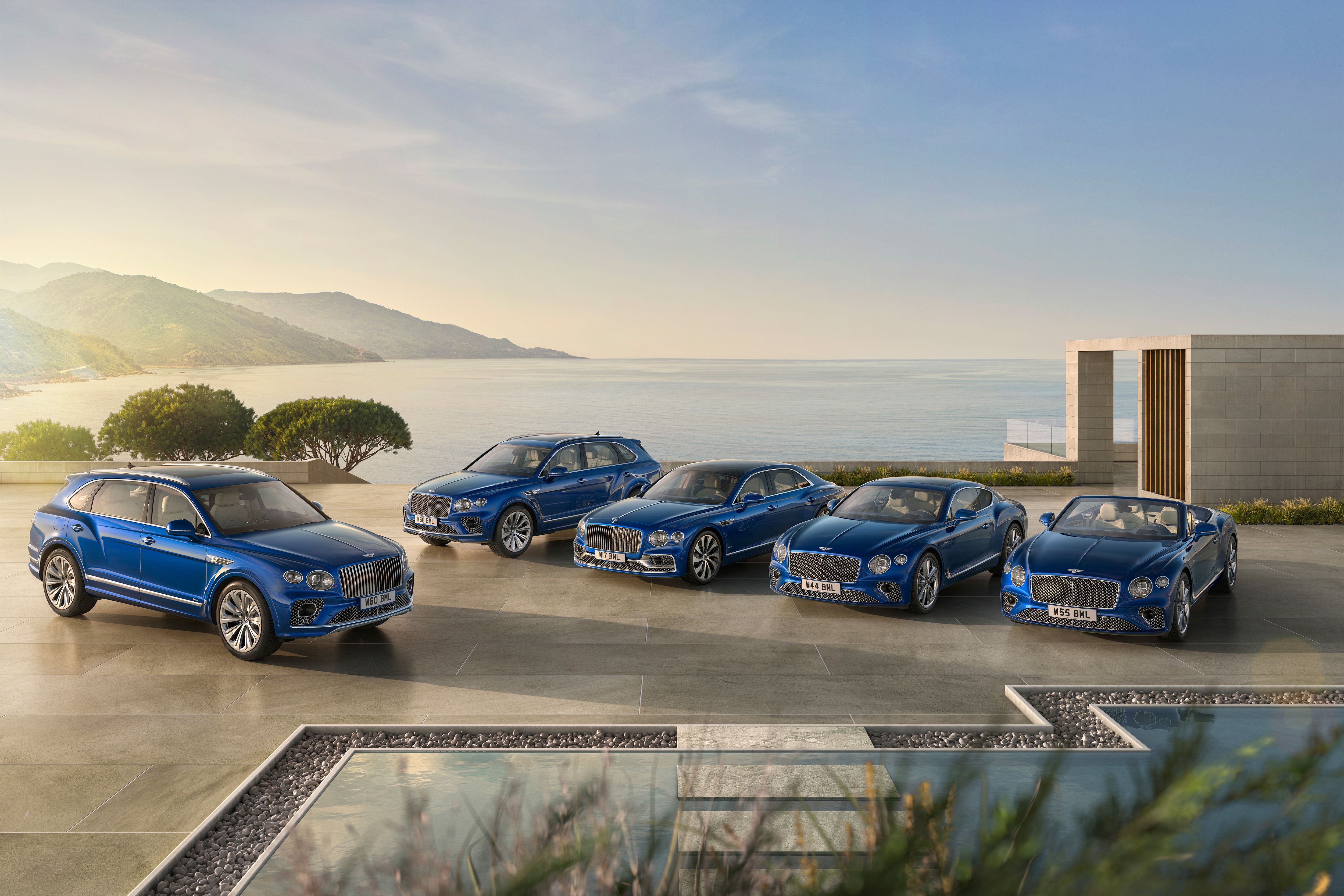
On the surface, the concept of ‘automotive wellness’ feels like a convoluted mash-up, mixing contemporary trends with conventional car interiors. No modern carmaker would disparage the importance of a well-honed interior, and today’s cars include layer upon layer of functionality, amenity, and luxury, whether they’re super-minis or super-cars. Bentley believes it can go one step further.
The company’s new Azure range prioritises ‘wellbeing behind the wheel,’ making an explicit connection between interior design and technology and the way you feel after a long journey.
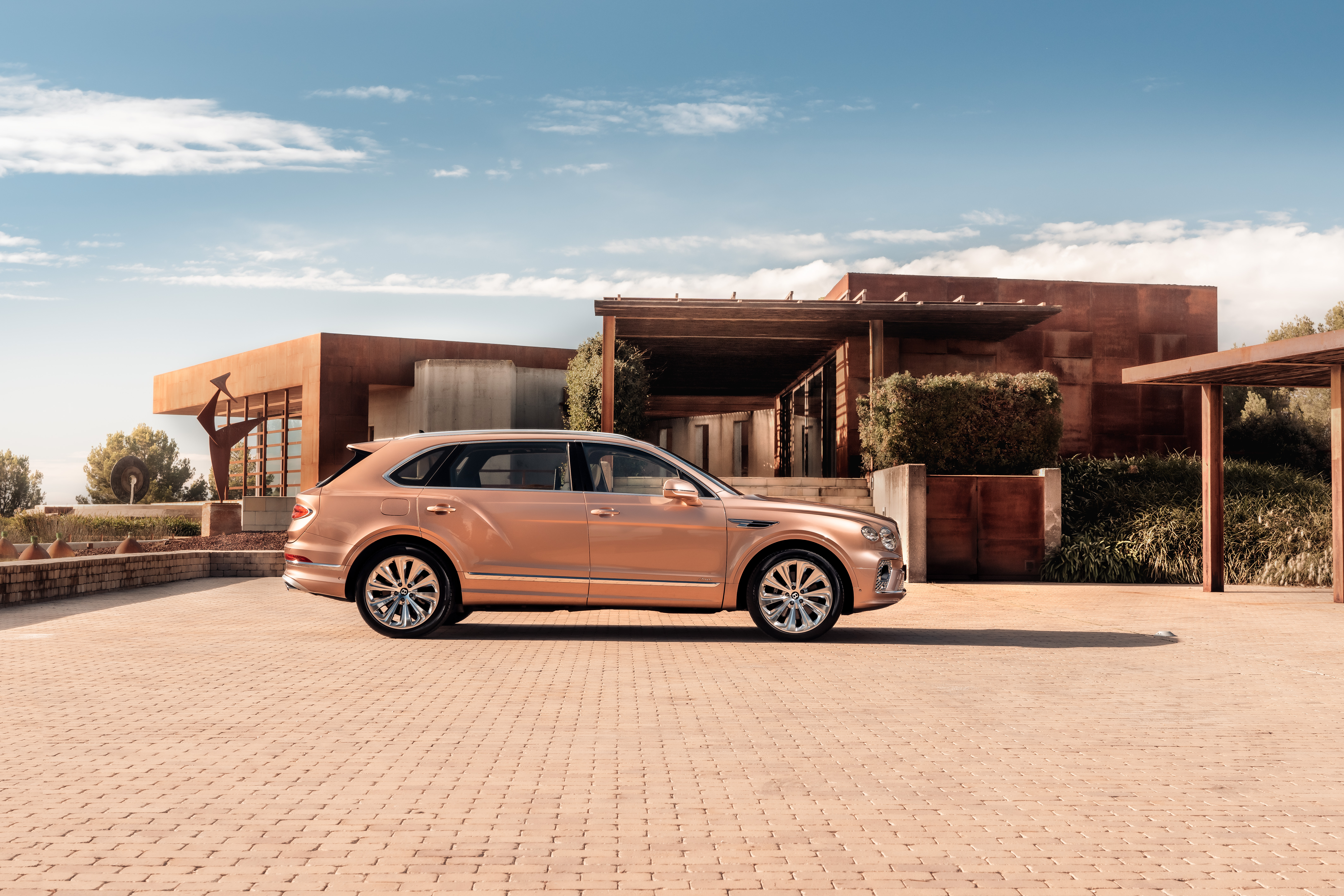
Bentley Bentayga LWB
Ultimately, there’ll be Azure variants available across every Bentley model line, just as you can buy ‘Speed’ versions that are more attuned to performance and dynamics, or a ‘Mulliner’ specification car to accommodate off-the-book trim and colour requirements.
Bentley claims to have enlisted a bunch of wellbeing experts and neuroscientists to validate the idea that being cosseted by hand-crafted luxury somehow makes you feel better about yourself (as if this were something that required scientific clarification).
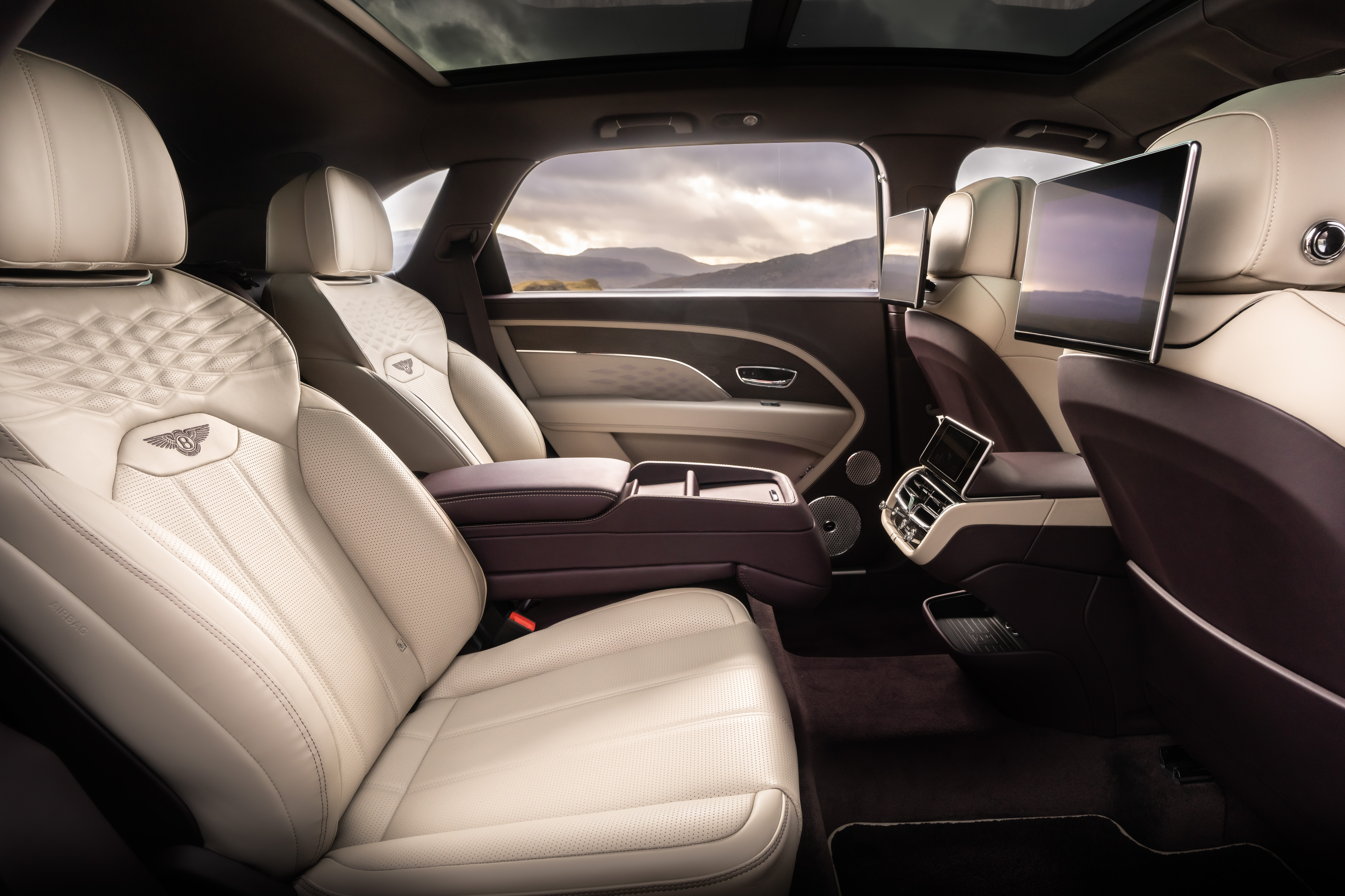
Crucially, Azure models are said to incorporate important ‘tactile and visual cues’, as well as Bentley’s well-established focus on very, very high-quality materials and surfaces.
One way of looking at it is a stealthy way of promoting the use of increasingly advanced driver assistance technologies, whose existence threatens one of the core strands of Bentley’s DNA, the pleasure of actually driving oneself.
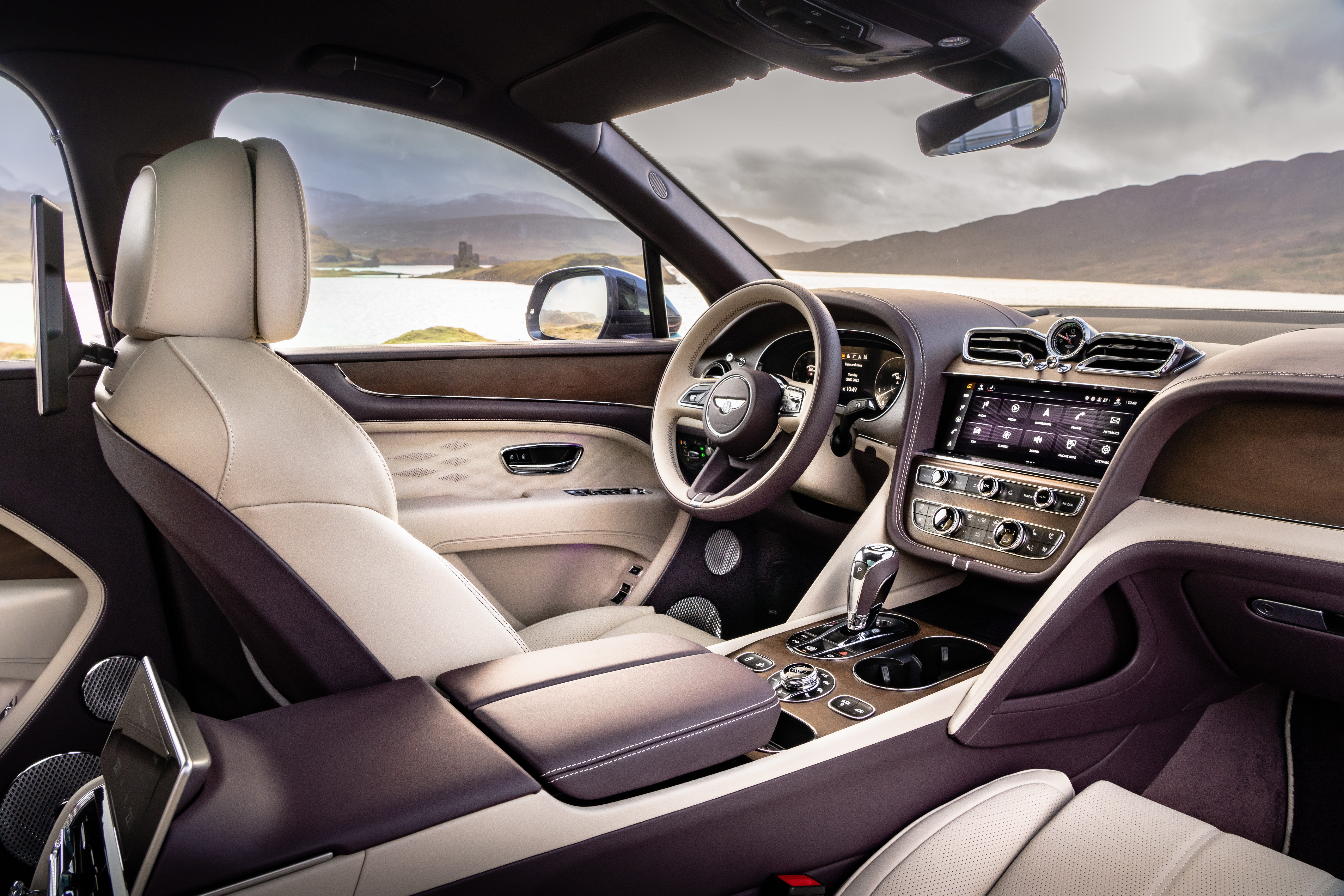
We’re still some years away from that scenario, but if you take driving out of the equation, all you’re left with a big, very comfortable and extremely lavish interior. This is best illustrated by the debut Azure model, the Bentayga Extended Wheelbase, a beast of a machine that manages to cram in more facilities than a Swiss spa into just 180mm of extra length.
Get all the latest news, reviews, deals and buying guides on gorgeous tech, home and active products from the T3 experts
For a start, the Bentayga EWB offers what Bentley is calling ‘Airline Seat Specification’ chairs, First Class travel that will recline to near horizontal, as well as give your back a pummeling massage. The seats also incorporate Bentley’s new ‘advanced postural adjustment system’, a fancy way of saying the seat is able to constantly change its shape in subtle ways to keep you from getting cramps. Airlines please note.
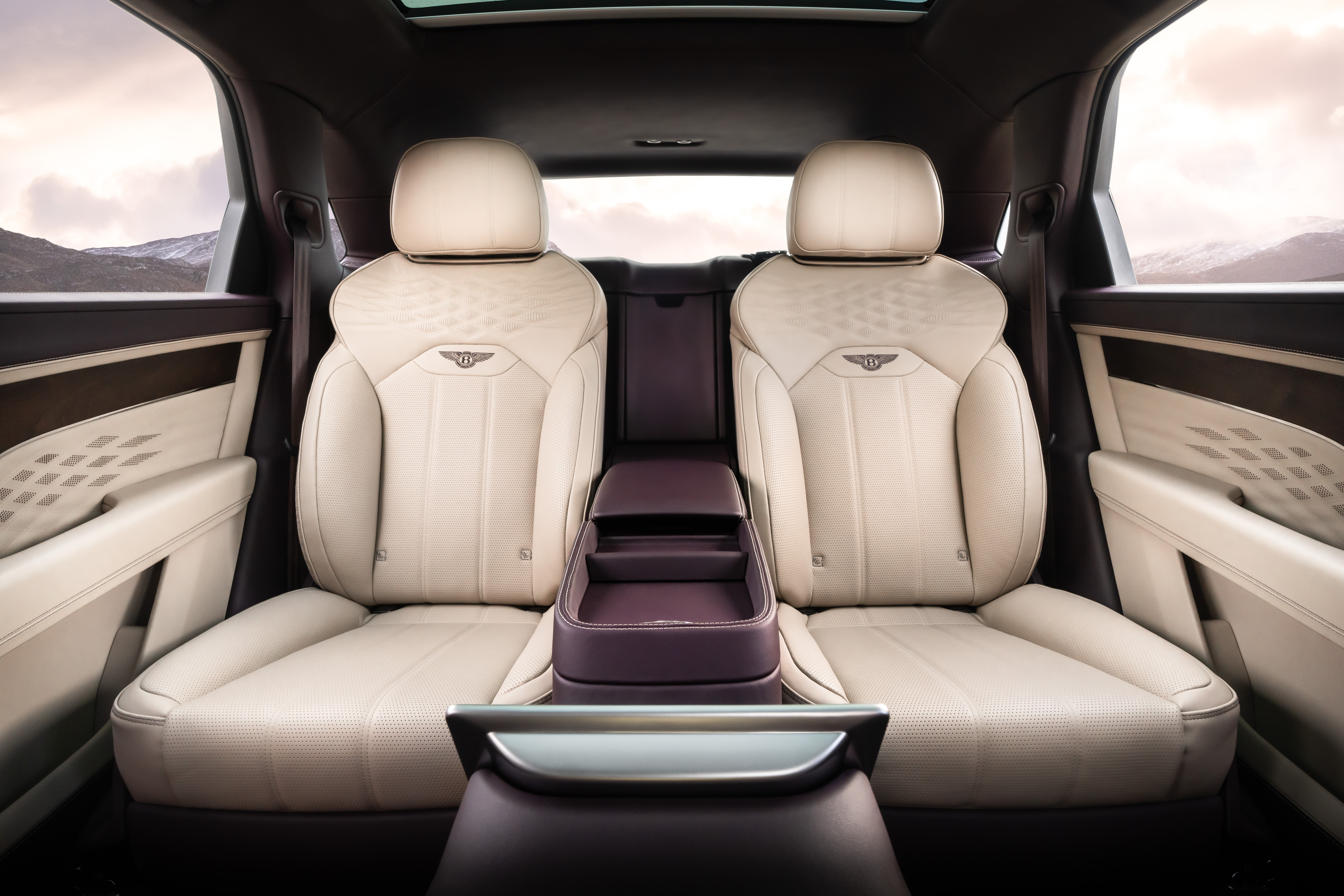
Up front are Bentley’s 22-way adjustable seats, designed to prevent slumping (which saps valuable oxygen, don’t you know). The Azure spec cars will also benefit from the latest active suspension, Bentley Active Ride.
The cars’ 48V electrical system accommodates electronically governed anti-roll bars, which can be adjusted instantaneously to make the ride buttery smooth.
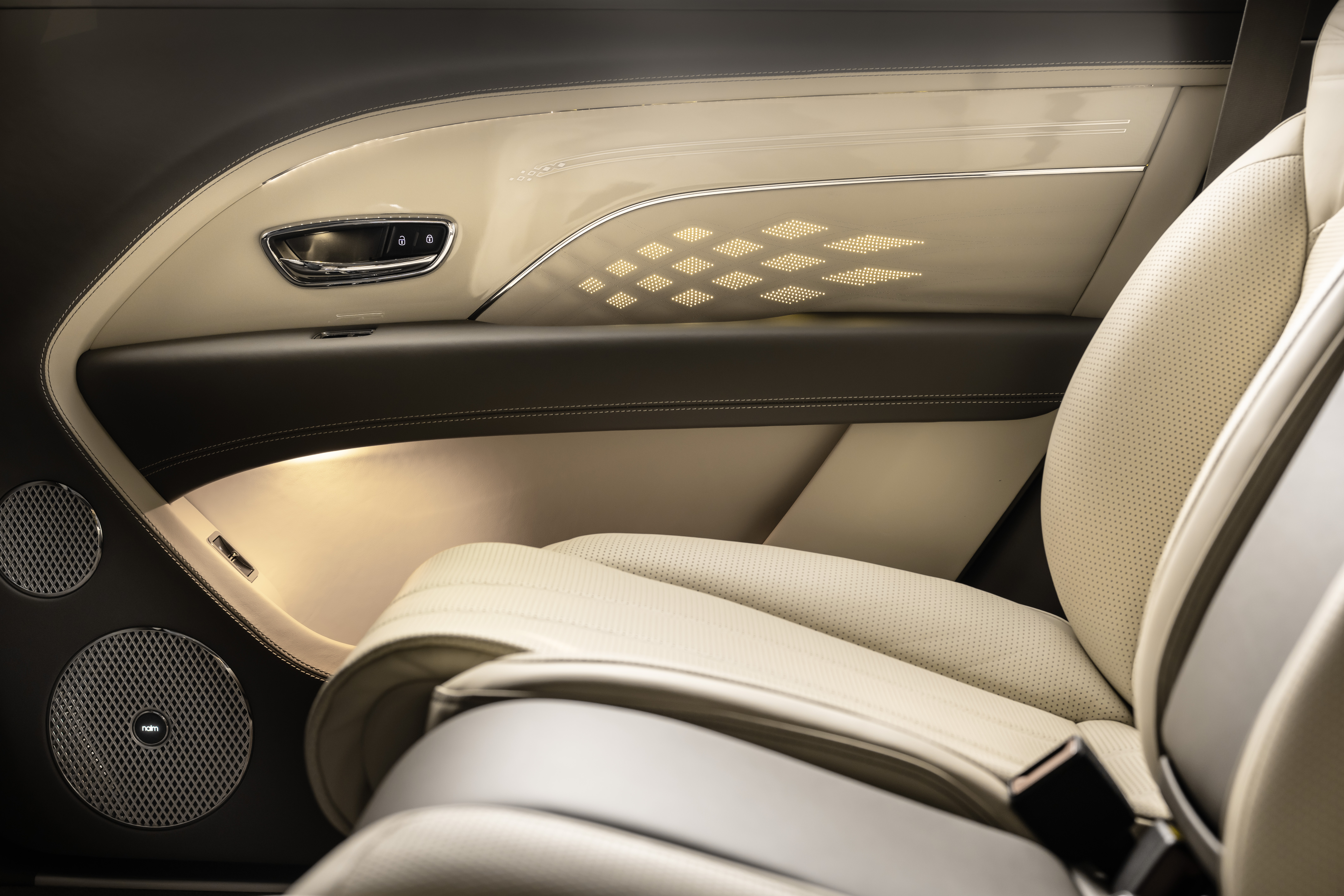
Driver assistance is taken care of through the Touring Specification driver assistance system, a package that takes the data from the plethora of cameras and sensors around the cars and stitches it together to give a comprehensive overview of any imminent danger.
This is where Bentley’s shared parentage with the wider VW Group really bears fruit; this kind of tech needs immense investment to remain at the cutting edge. VW spent 15.6 billion euros on R&D in 2021; Bentley sits pretty close to the top of the tree and gets early dibs on the best of this tech, anything from night-vision systems to the ability to eliminate unwanted noise or vibration.

One area where the company is happy to lag slightly behind is electrification. The first Bentley EV isn’t due to appear until 2025, although a rumoured concept vehicle could be seen as early as this summer to hint at what to expect.
EVs pose their own set of problems, not least the need to balance the colossal heft of luxury accoutrements with a battery sufficient to lug it all along at a decent clip. And just as car engineers have all but eliminated unwanted noise from an internal combustion engine, the whispered hush of electrification throws up new sounds from other parts of the car – wind, tyres, suspension, etc.
There are psychological issues here as well: make a car too quiet and detached from the physical forces your eyes comprehend, and you risk making drivers – and passengers – start to feel slightly sick, as their sense of balance can’t correlate the two.

For now, Bentley Azures marry old school drivetrains to new age ambitions. An Azure is a place of tactile joy, full of surfaces designed to be touched and appreciated.
‘When we see pleasing forms, shapes and colours our brains release chemicals such as dopamine that not only make us feel good but are good for our body and sense of wellbeing,’ says Maria Mulder, Head of Colour & Trim at Bentley Motors, ‘Every fabric, sound, motion, colour and touch continuously impacts our nervous system, and the Azure cabin has been finessed accordingly.’
If you’re in the market for a fully bespoke automobile, you probably already have a small army of well-being providers poised for immediate deployment. The Azure series will be another service to add to their retinue.
This article is part of The T3 Edit, a collaboration between T3 and Wallpaper* which explores the very best blends of design, craft, and technology. Wallpaper* magazine is the world’s leading authority on contemporary design and The T3 Edit is your essential guide to what’s new and what’s next.

Jonathan Bell is Wallpaper* magazine’s Transport and Technology Editor, a role that encompasses everything from product design to automobiles, architecture, superyachts, and gadgets. He has also written a number of books, including Concept Car Design, 21st Century House, and The New Modern House. His interests include art, music, and all forms of ephemera. He lives in South London with his family.
